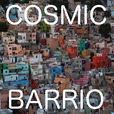
Summary: An interview with Bonga - in Portuguese. This is the 4th podcast from the Oslo World fest and one of the most meaningful interviews I've ever done in my radio career. It was an honor to spend 30 minutes with an artist of such stature. In addition to an in-depth interview, this podcast also also includes 3 songs: 1. Tonokenu (from "Recados de Fora") 2. Mona Ki Ngi Xica (from "Angola 72") 3. Recados De Fora (from "Recados de Fora") He was born José Adelino Barcelo de Carvalho in Kipiri on 5 September 1942, but changed his name to Bonga Kuenda when he reached his teens, already showing a keen awareness of the realities of Portuguese colonialism. He learned about music from his father and rapidly grasped its potential impact when linked to the political aspirations of his generation and an inexhaustible melancholic vein. As he is always quick to explain, he never faltered in his principles: “All Angolan culture was under Portuguese domination. Traditional languages were banned, as was African music. We had no weapons to fight with, so we organized cultural resistance, especially by forming folk groups, including Kissueia, my first band. With Kissueia, I sang songs that revived ancestral African forms and whose lyrics clearly referred to the troubled situation at the time, poverty, colonial violence and latent revolt.” In the mid-Sixties, Bonga’s athletic talents took him to Portugal. There, he ironically became the national 400 & 200 meters champion under his birth name, while playing an active part in the Popular Movement for the Liberation of Angola. When the Salazar regime finally realized he was playing a double game, he managed to get out just in time and went into exile to the Netherlands. There, in 1972, he recorded a harrowing first album soberly entitled “Angola 72” (today available on the Lusafrica label). This record quickly became the soundtrack of Angola’s struggle for independence...
